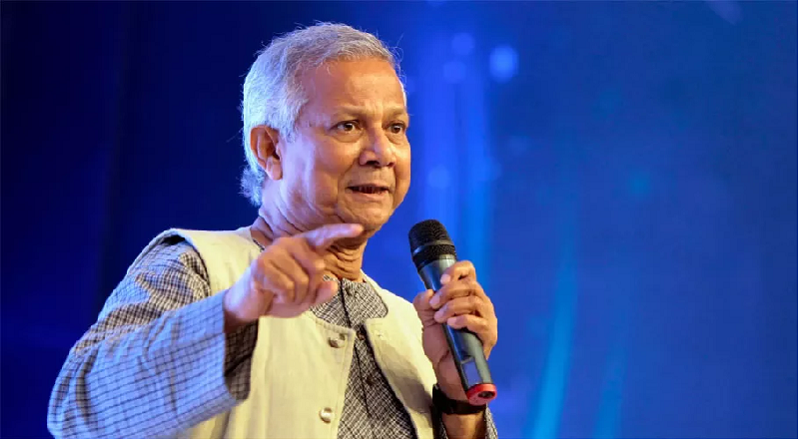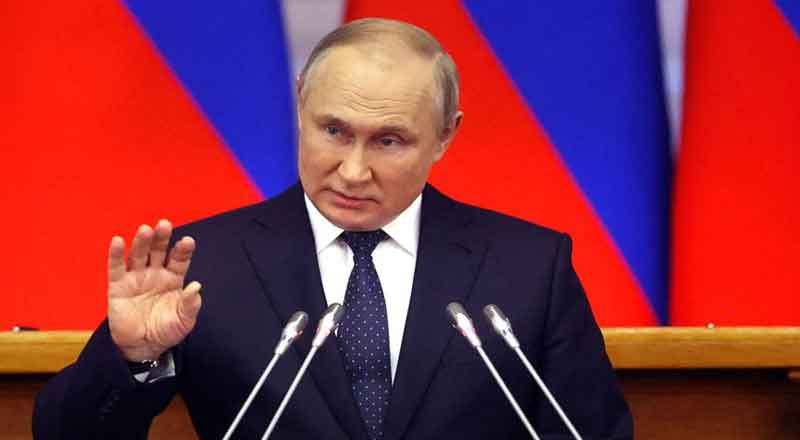Historic Swearing-In Amidst Crisis
On August 8, 2024, Bangladesh experienced a dramatic political shift as Muhammad Yunus, the acclaimed Nobel Laureate and founder of the Grameen Bank, was sworn in as the head of the interim government. This development followed the resignation and flight of Prime Minister Sheikh Hasina, who left Bangladesh in a dramatic exit under pressure. Yunus’s appointment marks a significant turning point in the country’s turbulent history, characterized by widespread unrest and political upheaval.
Yunus, at 84, is known globally for his pioneering work in microfinance and social entrepreneurship. His return to Bangladesh from Paris and his subsequent swearing-in at the presidential palace in Dhaka was met with a mix of hope and apprehension. The swearing-in ceremony was held at the Bangabhaban, where Yunus, dressed in a traditional chequered kurta and white vest, was greeted with a standing ovation. President Mohammed Shahabuddin administered the oath of office to Yunus and the interim cabinet.
Composition of the New Interim Government
The interim government, led by Yunus, is notable for its non-political composition. The cabinet includes 17 advisors drawn from various sectors of society, with no prior political experience. This approach reflects a departure from traditional political leadership, aiming to address the country’s crisis from a fresh perspective. The advisors sworn are expected to take their oaths later due to their absence from the capital at the time.
The ceremony was attended by leaders from various political parties, including the Bangladesh Nationalist Party (BNP), Jatiya Party, Jamaat-e-Islami, Communist Party of Bangladesh (CPB), and Krishak Sramik Janata League. Notably, there were no representatives from the Awami League, Sheikh Hasina’s party, highlighting the current political divide.
Immediate Challenges and Goals
With Yunus at the helm, the interim government faces a range of pressing challenges. The country has been grappling with severe unemployment, rampant corruption, and widespread violence, which has led to over 400 deaths and extensive damage to public and private property. The interim government’s immediate task is to restore law and order and address the underlying issues that led to the current unrest.
Yunus has emphasized the need for unity and rebuilding trust in the government. In his remarks following his swearing-in, he stressed, “Bangladesh is like a family, and we need to unite it. It is critical that trust in the government be restored quickly. We need calm, we need a roadmap to new elections, and we need to get to work to prepare for new leadership in order to fulfill the extraordinary potential of Bangladesh.” He has promised to address crimes committed during the previous administration and to revive the integrity of state institutions.
Planning for Elections
One of the most critical tasks for the interim government is preparing for new elections. President Shahabuddin has pledged to hold elections “as soon as possible.” However, the exact timeline for these elections remains unclear. According to Bangladesh’s constitution, elections are required to be held within 90 days of parliament’s dissolution. Given the extraordinary circumstances surrounding the dissolution of parliament on August 6, this constitutional requirement may be subject to reinterpretation.
Nitai Roy Chowdhury, a former state minister, has suggested that the “Doctrine of Necessity” might influence the election timeline. This legal principle, used during past political crises, allows for deviations from standard constitutional procedures in exceptional situations. Former Foreign Secretary Shamsher Chowdhury has also weighed in, suggesting that the interim government might serve a longer term. He indicated that significant constitutional changes might be needed before elections could be held, potentially extending the interim period.
Sheikh Hasina’s Potential Return
The future of Sheikh Hasina remains a subject of intense speculation. Initially, her son Sajeeb Wazed Joy had suggested that Hasina and her family had decided against returning to Bangladesh. Joy indicated that the family had made a firm decision to remain outside the country permanently.
However, recent statements from Joy suggest a possible change in Hasina’s stance. On August 9, Joy revealed that Hasina is now willing to return to Bangladesh once the interim government sets a date for elections. He emphasized that the Awami League, despite recent setbacks, remains a crucial player in Bangladeshi politics. “If we want to build a new Bangladesh, it is not possible without the Awami League,” Joy stated. He highlighted the party’s historical significance and its ongoing role in the country’s political landscape.
As Bangladesh navigates this period of transition, the effectiveness of Yunus’s leadership and the interim government’s ability to stabilize the nation and plan for future elections will be critical. The coming months will be pivotal in determining the path forward for Bangladesh and the potential return of Sheikh Hasina to the political arena.
(With inputs from agencies)





